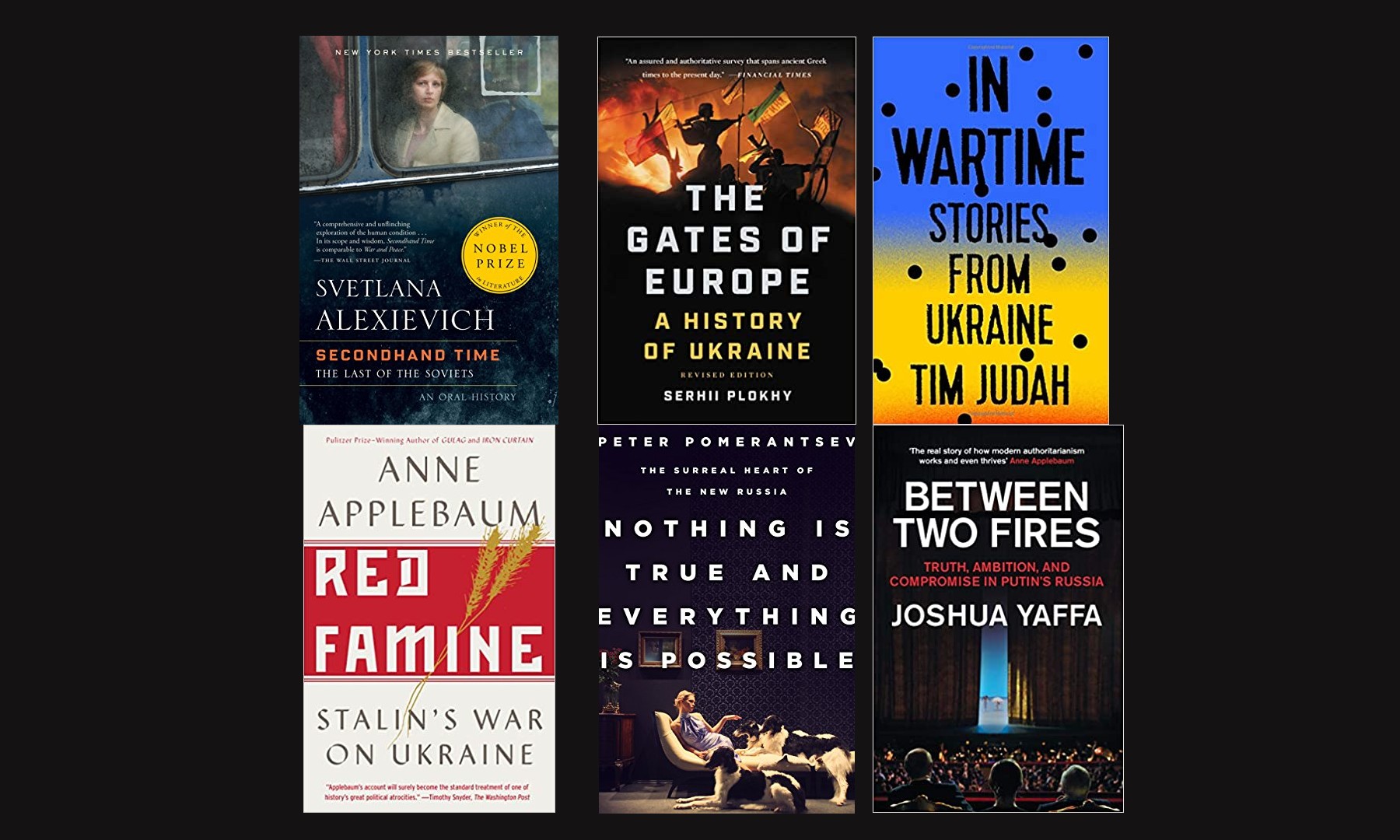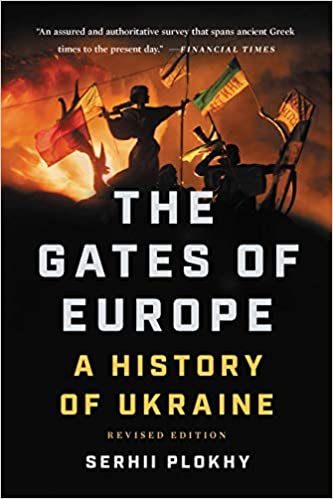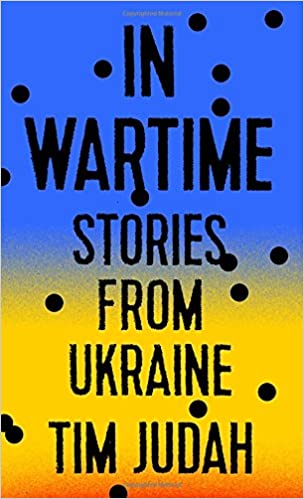
Six books to better understand the Ukraine crisis
Check out this comprehensive reading list to analyze the conflict between the two countries.
In recent days, many articles have been written about the Russian invasion of Ukraine and the reasons that led Vladimir Putin to breaks all international protocols. But really, what do we know about Ukraine and Russia, their people, culture, what we have in common and don't? Here are six book recommendations to delve deeper into the conflict:
The Gates of Europe: A History of Ukraine, by Serhii Plokhy

Situated between Western Europe, Russia, and the Middle East, Ukraine has been shaped by empires that exploited the nation as a strategic gateway between the East and West — from the Romans and Ottomans to the Third Reich and the Soviet Union. In The Gates of Europe, Serhii Plokhy, one of the most popular Ukraine scholars in the West, examines Ukraine’s search for identity through the lives of major Ukrainian historical figures, from its heroes to its conquerors.
Plokhy is a professor of history at Harvard and director of Harvard Ukraine Institute.
This book is only available in English.
Red Famine: Stalin's War on Ukraine, by Anne Applebaum

From the author of the Pulitzer Prize-winning Gulag and the National Book Award finalist Iron Curtain, this book tells of Soviet-enforced collectivization, famine and suppression of history in Ukraine.
In Red Famine, Anne Applebaum argues that more than 3 million of those dead of famine in the Soviet Union were Ukrainians not because they were accidental victims of a bad policy but because the state deliberately set out to kill them. Devastating and definitive, Red Famine captures the horror of ordinary people struggling to survive extraordinary evil.
(Available in English and Spanish)
In Wartime: Stories from Ukraine, by Tim Judah

Ever since Ukraine’s violent 2014 revolution followed by Russia’s annexation of Crimea, the country has been at war. Misinformation reigns, more than 2 million people have been displaced, and Ukrainians fight one another on a second front — the crucial war against corruption.
With In Wartime, Tim Judah, a British writer, reporter and political analyst for The Economist, lays bare the events that have turned neighbors against one another and mired Europe’s second-largest country in a conflict seemingly without end.
This book is only available in English.
RELATED CONTENT
Between Two Fires, by Joshua Yaffa

Joshua Yaffa, Moscow correspondent for The New Yorker, wrote an interesting book that explores the intimate lives and compromises of ordinary Russians living under Putin’s regime. Yaffa meets a variety of Russians — from politicians and entrepreneurs to artists and historians — who have built their careers and constructed identities in the shadow of Putin's system.
This book is only available in English.
Secondhand Time: The Last of the Soviets, by Svetlana Alexievich

Originally published in Russian and German in 2013 and translated into Spanish two years later, Secondhand Time: The Last of the Soviets is one of the great works of Belarusian writer and journalist Svetlana Alekseyevich, winner of the Nobel Prize for Literature in 2015. She only needed a recorder, a pen and a huge amount of interviews to keep alive the memory of what happened in the Soviet Union and understand the everyday life of a world that no longer exists.
The book is in English and Spanish.
Nothing Is True and Everything Is Possible: The Surreal Heart of the New Russia, by Peter Pomerantsev

Ukrainian-born British journalist Peter Pomerantsev plunges into the booming Russian TV industry and gains access to every nook and corrupt cranny of the country. Published in 2017, the author is brought to smoky rooms for meetings with propaganda gurus running the nerve-center of the Russian media machine, and visits Siberian mafia-towns and the salons of the international super-rich in London and the U.S. As Putin's regime becomes more aggressive, Pomerantsev finds himself drawn further into the system.
This book is available in English and Spanish.












LEAVE A COMMENT: